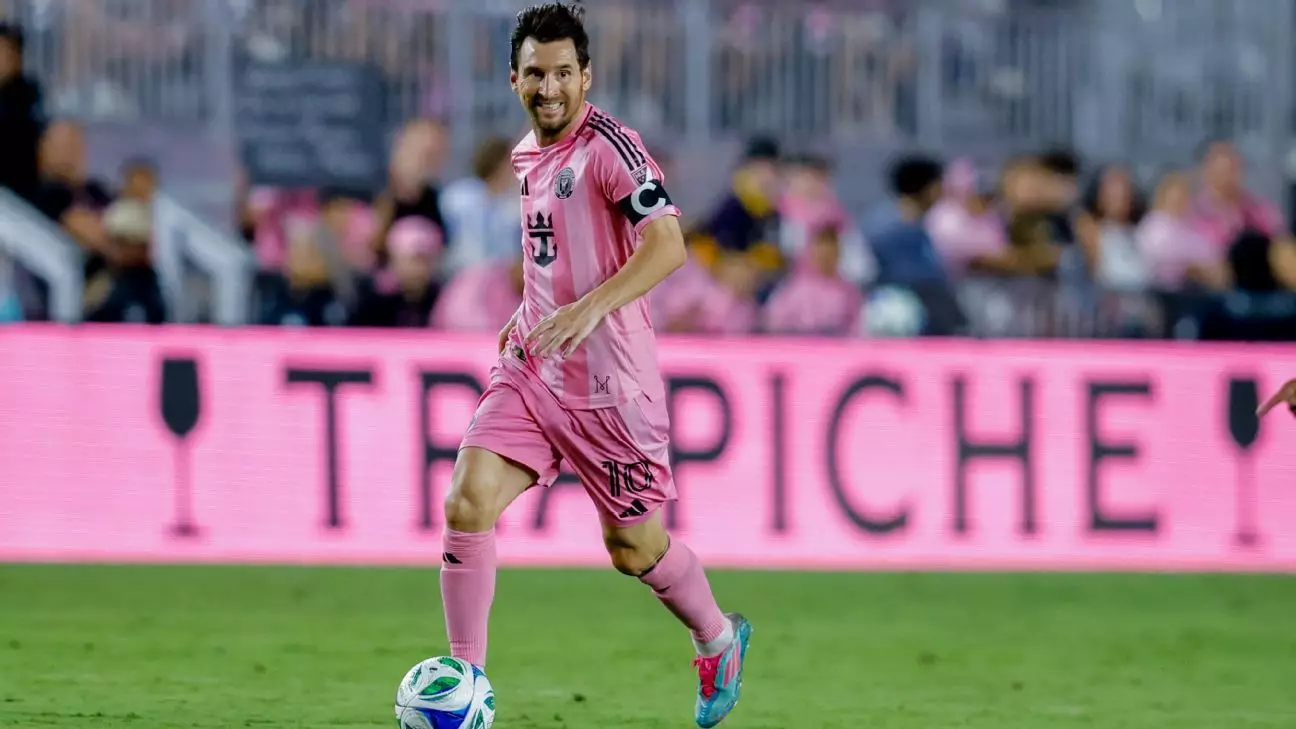Major League Soccer (MLS) has always teetered between underdog status and the challenge of redefining soccer culture in the United States. In its 30-year existence, the league has typically struggled on the international stage, particularly in competitions like the Concacaf Champions Cup. Historically, MLS teams have secured only three continental titles, with the Seattle Sounders winning the latest in 2022. The representation of American soccer on the world stage raises critical questions: Is the outlook finally shifting for MLS? With recent performances leading to mixed results, one cannot help but wonder about the league’s readiness to face formidable global opponents.
The past few years have shown a glimmer of hope; six of the previous eight Concacaf Champions Cup finals featured an MLS team. Yet, the devastating 5-0 loss for the Vancouver Whitecaps against Cruz Azul in this year’s final highlighted a stark reality. The humbling defeat serves not as a mere setback but as a glaring signal that MLS sides must bridge the gap in competitive quality to truly contend on a global platform.
Club World Cup: A Double-Edged Sword
As MLS teams prepare for the FIFA Club World Cup, the stakes have never been higher. This prestigious tournament showcases 32 of the world’s elite football clubs, and for Inter Miami, LAFC, and the Seattle Sounders, the journey could define the league’s global standing. With heavyweights like Paris Saint-Germain, Chelsea, and Flamengo in the mix, one question looms large: can MLS teams withstand the pressure?
The Club World Cup represents a unique challenge, entirely different from regular-season matches. While MLS players may occasionally err during the league’s long fixtures, the margin for mistakes drastically diminishes on this stage. Brian White of Vancouver succinctly stated, “When we made mistakes, they punished us.” This realization underscores the importance of being not just prepared but exceptionally sharp when facing global giants.
As MLS teams enter this competition, the financial disparities come to the forefront. Cruz Azul’s market value eclipsed that of Vancouver by a staggering $21.8 million. Such differences can have profound implications not just for immediate match outcomes but for the potential trajectory of American soccer as a whole.
Misdirection in Expectations
Despite the vast differences in player valuation and depth, an interesting narrative has emerged around Inter Miami’s recent acquisition of Lionel Messi and other former stars. While Messi’s presence undoubtedly casts a bright light on the league, it also raises inflated expectations. Head coach Javier Mascherano and veteran midfielder Sergio Busquets have both tempered enthusiasm, emphasizing that the MLS still has a long way to go before it can truly compete against the likes of European and South American teams.
While Inter Miami enters the tournament with signs of improvement, including crucial league victories, they also reveal vulnerabilities that could be exposed on the world stage. This precarious balance of high hopes versus harsh realities further complicates what could be a transformational moment for the league. For Inter Miami, merely surviving the group stage may mark a small victory, but history shows that ambitions often elevate, and the challenge may feel insurmountable.
Reputation on the Line
As MLS teams prepare to face off against some of the most storied franchises globally, it’s essential to understand the implications of their performances. Over the years, the “retirement league” label has stuck to the league, casting a shadow over genuine talent development and growth. However, with an influx of international stars and increasing outbound transfers, the narrative is changing. A successful outing in the Club World Cup may serve to elevate the league’s reputation beyond its current constraints.
The question remains: will the MLS teams be able to leverage this opportunity? Each team’s unique group dynamic provides a stage for individual talent to shine. With LAFC, the focus will be on whether they can transcend expectations and upset more established teams. A respectable performance, particularly one that leads them into the knockout rounds, could not only enhance the perception of MLS but also ignite a fresh wave of interest in American soccer.
The Tipping Point: Performance Determines Future
Ultimately, the FIFA Club World Cup stands as a dual-edged sword for MLS. On one side, failure could further entrench the narrative that the league is an inferior alternative to its foreign counterparts. On the other, success could pivot the conversation toward a brighter narrative about soccer in America. The potential for growth extends beyond immediate results; it could reframe how future talent views MLS, presenting an opportunity for international prospects to see the league as a viable path to success.
As the tournament approaches, all eyes will be on MLS teams. Will they rise to meet the challenges presented, or will they succumb to the weight of expectations? The world of soccer is watching closely, and the outcome may profoundly shape the perception and trajectory of professional soccer in America for years to come.

